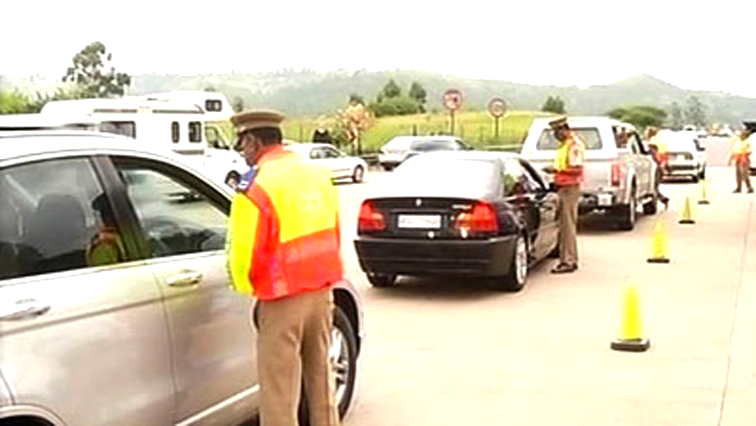Breathalyser tests for drunk drivers that will stand up in court will be rolled out in South Africa in 2019.
This has been announced as Transport Minister Blade Nzimande launched the Easter Road Safety campaign in Pietermaritzburg.
This means that authorities would not have to wait for long periods for the result of blood tests to prosecute alleged offenders.
Drager breathalyser tests for suspected drunken drivers are back, and this time around experts believe they have closed the legal loopholes.
Nzimande says the more stringent system has been successfully piloted across four provinces.
Drunk driving is one of the biggest causes of road accidents in South Africa.
Nzimande says it means that authorities will be able to prosecute drunk driving cases much faster.
“Before we would wait sometimes for up to six months before blood results actually come back. Some people get caught drunk five, six times or more times even before the first results come back.”
“Now we get the results instantly which means we can proceed as soon as possible to actually charge people and we believe this is going to be a huge deterrent.”
The re-introduction of Drager breathalyser readings as evidence in court comes after a 2011 ruling in the Western Cape High Court that the manufacturer couldn’t be the supplier and referee of the equipment’s accuracy.
It took experts more than seven years to draw up independent specifications for the breathalyser equipment and the standardisation of readings.
The National Prosecuting Authority’s advocate George Baloyi explains which documents have to be included in the docket before a drunken driving case is prosecuted.
“Firstly there must be the arresting officer’s statement, secondly there must be an operator’s statement, thirdly there must be a copy of the type approval certificate, fourthly there must be a copy of the most recent calibration certificate, fifthly there must be a copy of the operator’s certificate and there must also be a printout of the results.”
Nzimande visited an alcohol evidence centre in Pietermaritzburg, one of six in the province.
A senior official from the KwaZulu-Natal Road Traffic Inspectorate Victor Chetty explained to the minister that suspected drunk drivers are brought to the centre for the Drager test after an initial screening breathalyser test by the roadside.
“On Sunday we did a programme here in Umsunduzi, Pietermaritzburg, and using this AEC. We arrested 15 minibus taxi drivers for being under the influence. So what it tells us as enforcement is that society is drinking any time of the day.”
Meanwhile, Nzimande wants driving under the influence of alcohol to be classified as a more serious offence.
Currently, the law provides for fines ranging between R2000 and R120 000 rand, a maximum of six years imprisonment and the suspension of a license.
Nzimande wants it to be declared a schedule five offence which means heavier prescribed minimum sentences.
The minister says the third leg of tightening up legislation around road accidents will be the introduction of the demerits system.
Parliament has already adopted the act. It is only for the president to sign it into law.
Nzimande says research worldwide has shown that such stringent measures are game changers to reduce road accidents that cost the country R162-billion a year.
Click video below:






